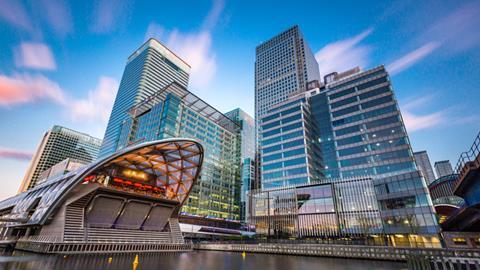Europe's largest bank, HSBC, has signalled its intentions to leave its UK headquarters in Canary Wharf in 2027 when the lease ends, according to a report from Reuters.

The news agency reported that it saw a memo circulated by the bank to employees suggesting that the bank is looking to move out towards the end of 2026. In 2022, reports also emerged that HSBC was 'considering its future'.
The bank is currently the sole tenant of the office space in the 42 storey tower in Canary Wharf, in the Docklands area of East London. HSBC moved into the tower in September 2002 shortly after the property was completed.
8 Canada Square was built to designs by Sir Norman Foster, and is owned by the Qatar Investment Authority, joint venture partners of the Canary Wharf Group.
According to the leaked memo, HSBC is considering a move to Panorama St Paul's, overlooking St Paul's Cathedral. At 556,000 ft2 (51,600 m2), the property would be around half the size of 8 Canada Square, which has office space of around 1.1 million ft2 and can accommodate 8,000 workers.
Panorama St Paul's is being developed by Orion Capital Managers, and is targeting practical completion in Q1 2025. The project website describes Panorama as 'simply tomorrow's world of work' and advertises 'an extensive range of health and wellness amenities; with a pool and gym, cafés and a market hall, multiple terraces and winter gardens, and a remarkable roof garden and restaurant'.
The mooted move reflects a trend of major corporations reassessing their office footprint. Average office vacancy rates in London rose to 9% in May, from 5% in March, according to CoStar data. Canary Wharf is at the higher end of this metric with a current vacancy close to 10%.
Commented Andrew Mawson, founder of global consultancy, Advanced Workplace Associates: 'HSBC is showing foresight by using the move to hybrid working to allow it to have a smaller, greener, more flexible headquarters that is more convenient for employees.
'With our research covering more than 200 workplaces worldwide showing that, given a choice, knowledge workers will come into the office less than two days a week, the world will become divided between enlightened employers embracing new ways of working to be more efficient and ditch expensive real estate, and the old command and control bosses mandating staff to be in the office the majority of the time whether it makes sense for them or not.'










